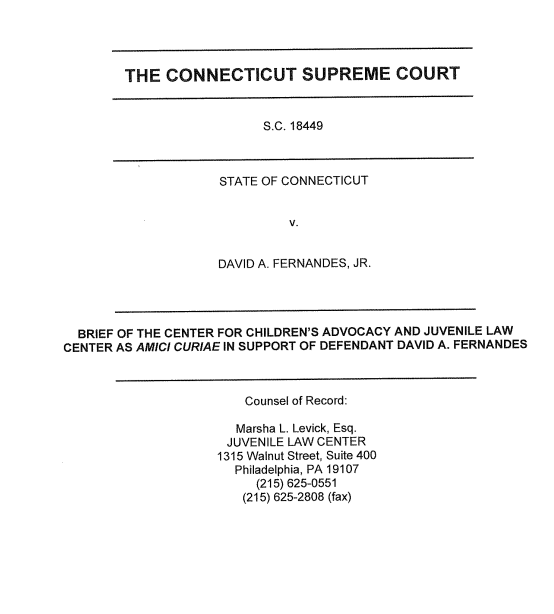
Summary of Argument
The difference in possible outcomes in juvenile versus adult prosecution and sentencing is profound, resulting in life-altering consequences for juveniles treated as adults. Connecticut statute, C.G.S. §46b-127(b), unlawfully delegates to the prosecutor the power to choose the forum in which juvenile offenders are prosecuted without providing standards to guide that choice, without requiring a statement of reasons for that choice, and without affording an opportunity for review of that choice. As a matter of forum selection, not charging, prosecutorial discretion does not provide any special justification for the denial of process. The need for process is even greater when a prosecutor, who is inherently adversarial, rather than a judge, who is inherently neutral, chooses adult court over juvenile court. The transfer statute that divested the juvenile court of jurisdiction over Defendant David Fernandes is constitutionally defective because it deprives youth of their vested liberty interest guaranteed them by C.G.S. §46b-120 et seq. (juvenile docket has original jurisdiction over youth under age sixteen until prosecutor moves for and judge orders transfer) without due process. For that reason, this court must affirm his conviction’s reversal.